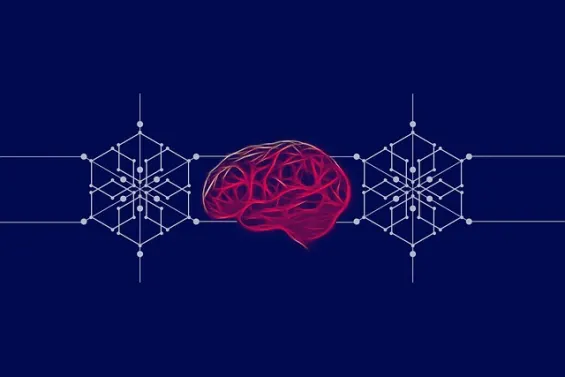This topic will be discussed with the following structure.
- What is Machine Learning?
- Understanding Machine Learning in SEO
- How to Implement Machine Learning in SEO
- The Impact of Machine Learning on the Future of SEO
- Conclusion
Machine learning is a subset of artificial intelligence that involves creating statistical models and algorithms that let computers get better at a task by learning from data.
Machine learning can be a potent tool in the field of Search Engine Optimization (SEO) for data analysis, pattern recognition, etc., to improve a website's visibility in search engine results pages (SERPs).
In this article, we will explore more about the use of machine learning in SEO.
What is Machine Learning?
Machine learning is a developing field of artificial intelligence, with a focus on developing algorithms that help computers to learn and make predictions or decisions without being explicitly programmed to do so.

In conventional programming, a human programmer would create a set of guidelines or directives that the computer would adhere to in order to resolve an issue or finish a task. On the other hand, machine learning entails supplying a computer with a lot of data and allowing it to discover patterns on its own.
Supervised learning, unsupervised learning, and reinforcement learning are the three defined categories of machine learning. In supervised learning, the computer receives examples of labelled data and learns to make predictions or categorize the data based on those examples.
Unsupervised learning is the process where computers learn to recognize patterns or relationships on their own, given unlabeled data. A computer learns to make decisions based on feedback it receives as it interacts with an environment through reinforcement learning.
Machine learning has many practical applications, including natural language processing, image recognition, fraud detection recommendation systems, etc. Machine learning algorithms, for example, can be used to identify spam emails based on their contents or to recommend products to clients based on their previous purchasing behavior.
Understanding Machine Learning in SEO
Businesses aiming to increase their online presence and reach a wider audience must comprehend how machine learning may enhance SEO efforts. These are a few SEO tips and applications for machine learning.

- Keyword Research: In order to determine the best keywords to target, keyword research in SEO typically entails manually analyzing the data from the search engines. We now have tools that can analyze vast amounts of data and patterns in how people conduct their searches thanks to advanced machine learning. These tools can also assist businesses in keeping current with shifts in search behavior and the newest keyword trends.
- Optimization of the content: Machine learning algorithms may examine the content of websites and pinpoint opportunities for improvement. Machine learning algorithms may find areas that require improvement by evaluating the material, such as adding pertinent keywords or increasing the text's readability. The website can raise its position on search engine results pages by upgrading the content.
- User intent analysis: Machine learning algorithms can better comprehend user intent by examining search queries and user behavior. In order to create content that corresponds with user purpose, it is essential to understand user intent. This increases the likelihood that the website will show up on relevant search engine results pages.
- Picture optimization: Images on a website may be examined by machine learning algorithms and optimized for search engines. Finding pertinent keywords and tags helps with this. A website can raise its position on search engine results in pages for picture queries by optimizing its images.
- Natural language processing (NLP): Search engines may get a better understanding of the context and meaning of material on a page with the use of natural language processing (NLP) technologies. NLP engines can decipher the purpose behind the material by evaluating the language used, which improves search engine ranks and exposure.
- Predictive analytics: Analytics that forecast the future by analyzing past user activity is known as predictive analytics. A website may tailor its content and strategy to better serve the requirements of its consumers by utilizing predictive analytics.
- Sentiment analysis: Machine learning algorithms can assess the sentiment of user comments and reviews. This can assist SEO services in determining the weak points of a website and implementing the required fixes to enhance user experience.
- Competitor analysis: Machine learning algorithms are capable of analyzing the tactics and content of rivals. A website might find opportunities for optimization and enhancement by analyzing the competitors.
- Link building: By analyzing links to a website, machine learning algorithms may find high-quality connections that can help the website rank better in search engine results. A website can increase its authority and visibility on search engine results pages by constructing high-quality links.
- Voice search optimization: As voice search grows in popularity, machine learning algorithms may assist websites in optimizing their content for voice search inquiries. Machine learning in SEO can assist websites to tailor their content to better fit the purpose of voice search queries by monitoring user behavior and search queries.
How to Implement Machine Learning in SEO
Using algorithms and models to improve a website's content, structure, and performance for search engines is what machine learning for SEO is all about. Here are some stages for developing machine learning-based SEO strategies:
Determine SEO objectives: The first step is to determine the precise SEO objectives for the target website. This can involve goals like enhancing search engine rankings, increasing traffic, increasing user engagement, etc.

Collect data: Machine learning algorithms require a large amount of data to analyze and identify patterns. Data collection can include things like website analytics, user behavior, and keyword research.
Analyze data: This step proves to be the most detrimental part of machine learning. These algorithms can analyze the compiled data to identify patterns and trends. This analysis can help identify areas for improvement, such as improving content, optimizing keywords, or improving website performance.
Develop models: After analyzing the data, machine learning models can be developed to work on the website content and structure for performance improvement. These models can include natural language processing (NLP) algorithms, sentiment analysis, predictive analytics, etc.
Implement models: Once the machine learning models are developed, they can be implemented on the website. This can include processes like optimizing website content, improving website performance, creating personalized recommendations for users etc., depending on the types of digital marketing strategies employed for the website.
Monitor results: It is essential to monitor the results of the machine learning implementation to ensure that the initial SEO goals that were determined are being met. This can include SEO tracking, tracking website traffic, user engagement, and search engine rankings.
The Impact of Machine Learning on the Future of SEO
The discipline of SEO (search engine optimization) has already seen a substantial impact from machine learning, and this influence is only projected to grow in the future.
For instance, user data from social media and online behavior may be analyzed using machine learning algorithms to better understand user intent and deliver more specialized search results.

The Internet of Things (IoT) generates enormous volumes of data, which might be analyzed using machine learning to get important insights into user behavior and preferences.
Large amounts of data are being analyzed using machine learning SEO algorithms in order to uncover trends that may be utilized to enhance user experience and improve search results.
By boosting user experience, increasing search relevancy, and producing individualized search results, this is anticipated to define the future of SEO.
Predictive analytics, which uses machine learning algorithms to make predictions about user behavior and trends, may help companies develop better marketing campaigns, optimize website content, and enhance their entire company strategy.
Conclusion
Machine learning is a potent tool in SEO for data analysis, pattern recognition, etc., to improve a website's visibility in SERPs and draw in more organic traffic.
Machine learning algorithms can be used to optimize the content, conduct user intent analysis, analyze pictures, implement NLP, sentiment analysis, predictive analytics, personalization, competitor analysis, link building, and voice search optimization.
Implementing machine learning in SEO requires determining SEO objectives, collecting data, analyzing data, developing models, implementing models, and monitoring results. Machine learning can significantly enhance a website's SEO and improve its overall online presence.
Read Next
The following articles are related to how to use machine learning in seo algorithms.






